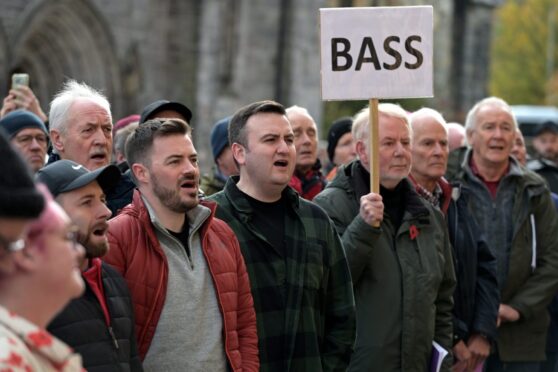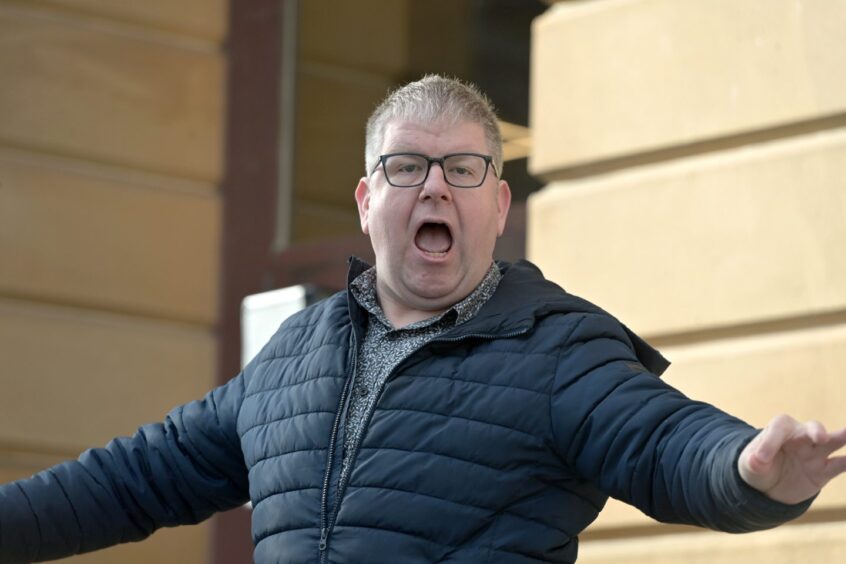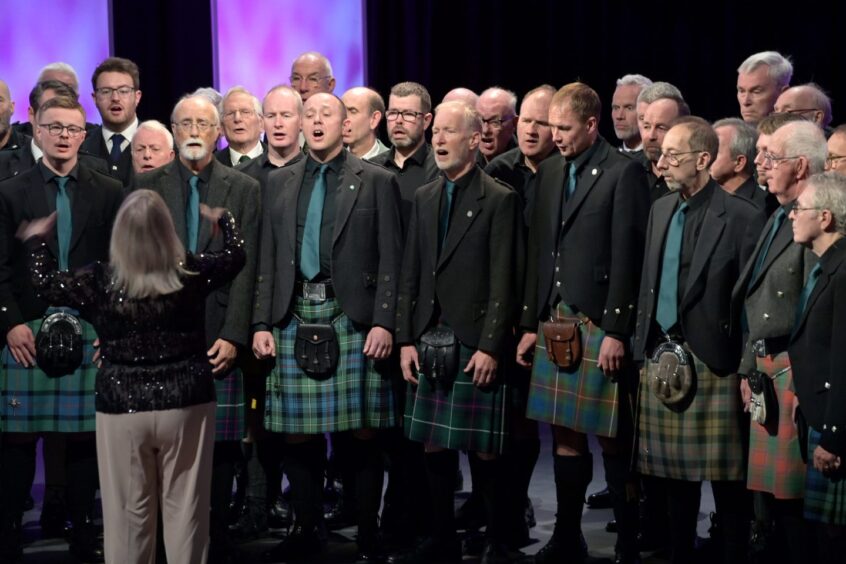In the most radical shake-up of the Royal National Mod for generations – men could potentially sing in a women’s choir, and singers would finally be encouraged to dance on stage.
An Comunn Gaidhealach (ACG) is consulting choirs on a sweeping range of changes it hopes will revitalise its annual competition programme and encourage more people to use the Gaelic language.
The Royal National Mod is held in various locations across Scotland every October.
The proposals include a break from a long-held tradition of no musical accompaniment or dancing during competitions.
Dancing and singing could bring Mod changes
If the proposals are accepted – choirs will be able to sing, and dance – and generally look as though they are enjoying themselves.
In a statement a spokeswoman for ACG said: “This is the first time in 100 years practical steps forward have been taken to review the structure of these competitions.
“With this comes a great opportunity to ensure the format is reflective of our Gaelic community and more inclusive, whilst still upholding the tradition, advancing Gaelic competence and ensuring the competitions’ longevity for future generations.”
There are more than 40 Gaelic choirs in Scotland, and dozens more spread across the globe.
If approved, changes would come into force by the Fort William Royal National Mod in October 2025.
In a letter to choirs, James Graham – ACG’s chief executive, and ACG vice-chairperson John Hoe MacNeil said there was a “real opportunity for change on the horizon”.
Inspired by the engagement of other native language competitions such as the National Eisteddfod festival in Wales, Oireachtas na Samhna, Derry International Choral
Festival and the International Choir Festival in Estonia, they hope more people will be encouraged to take part in future.
What changes are being consulted on by the Gaelic body?
While sweeping changes are being proposed, particularly for the makeup of choral competitions and group performances, ACG is keen to point out that nothing will be decided until after the consultation closes on March 29, and a paper has been presented to its board of directors.
The proposals include:
-
- A move away from titling competition “male and female” towards referencing the types of voices required in the competition. For example, a woman with a tenor voice could take part in a competition that was previously for men only. The consultation document reads: “In line with our equality and diversity policy, the language going forward will be “Soprano and Alto Voices, and Tenor and Bass Voices. This does not exclude other voice ranges such as baritone.”
- Every year choirs will be asked to detail each member of the choir and their level of Gaelic competence.
- An Comunn will ask for the choir’s strategy for developing language across the choir community – for example – weekly language classes before rehearsals.
- Choral competitions would move to a performance-based and “more holistic approach to adjudicating”.
- Additional awards will be created such as – best creative performance, best new song etc.
- While there will be options for prescribed songs for choirs – there will be a move to a “programme of work” of up to 12 minutes and four songs in some competitions.
- Choirs and quartets can be accompanied by music for at least one of its choral arrangements- breaking tradition with acappella singing.
- A mixed choir competition will be introduced on a Thursday – for choirs not competing in the premier former Lovat and Tullibardine and Margrat Duncan competitions.
- An acapella competition would be introduced for groups of five to 10 singers of any music style, and choreography is encouraged.
- A Celtic choir competition of more than 11 singers in any language from Gaelic, Irish, Welsh, Breton, Manx or Cornish.
- Premier choir competitions on a Friday will be divided by the number of members in choirs – for example, mixed choirs of at least 35 voices and over – will be asked to sing a 12-minute programme with a maximum of four songs (at the moment there is one prescribed and one own choice piece).
- Music from other genres including classical, barbershop, musicals
translated into Gaelic and sung in Gaelic will be encouraged. - Performances can include creative dance, body percussion or anything that adds to the performance.


